Engineer Turns Organic Farmer, Supplies Fresh Greens to Houses an Hour After Harvest
Bhavya grows palak (spinach), methi (fenugreek), coriander and amaranthus, month-on-month in rotation, and harvests close to 400 kgs every month. All these vegetables are grown using organic methods.
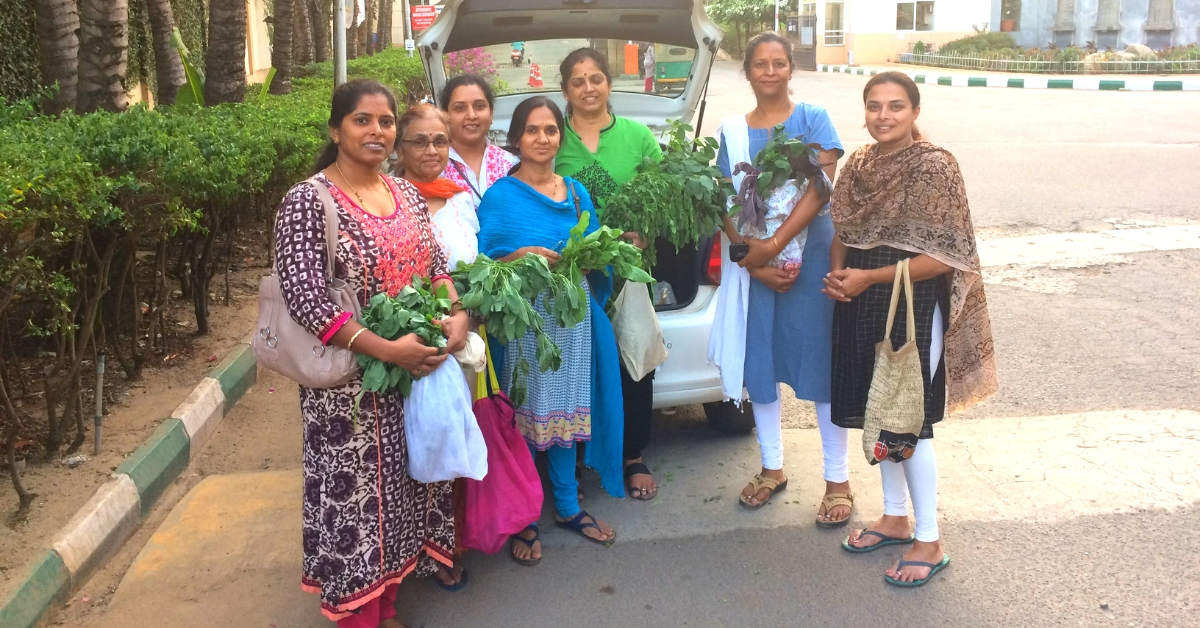
Bathed in abundant sunlight and blooming with an array of colours, Bhavya Deepesh’s lush green farm is spread across two acres of leased land near Nettigere in Bengaluru.
A greenhouse which houses a wide range of ornamental and indoor plants like geraniums, petunia, coleus, carnation, fittonia, marigold, snapdragon, vinca, gazania (and so many more) takes up one acre of this space.
What stands in stark contrast to these iridescent colours though, is a half-acre plot with 12 vast patches of green.

There, Bhavya grows palak (spinach), methi (fenugreek), coriander and amaranthus, month-on-month in rotation, and harvests close to 400 kgs every month. All these vegetables are grown using organic methods.
Following each harvest, the civil engineer-turned-organic farmer engineer-turned-organic farmer travels 32-kilometres thrice a week, she carries 100 bundles (250 grams each) of this tender ‘soppu’ (greens) straight from the thota (field) to be personally delivered to 140 customers, residing in two apartment complexes on Kanakpura Road.
In an interview with The Better India, the organic farmer narrates her journey.
Bhavya was born and brought up in Mandya district where she studied up to Class 12. She moved to Bengaluru to pursue her civil engineering 2001 from the University Visvesvaraya College of Engineering (UVCE).
When I ask her if civil engineering was her career of choice, she says, “Honestly, I did not want to pursue it. But since I had scored 85 per cent in my second PU exams, my parents thought I would be suited for a more secure career.”
After graduating from UVCE, she worked with a private firm to design accessible places. A year and a half later, she married Deepesh Gowda, also a civil engineer by profession.
The duo, despite working for different companies, aspired to begin something of their own. And so, in 2010, alongside two other partners, they kickstarted their construction firm.
“One of us had to continue working with another firm to get a fixed income. We couldn’t risk our financial stability due to uncertainties that come with the business.”
The construction business continues to thrive, and Bhavya handled the administrative and financial aspects.
So, how did the switch to farming even happen?
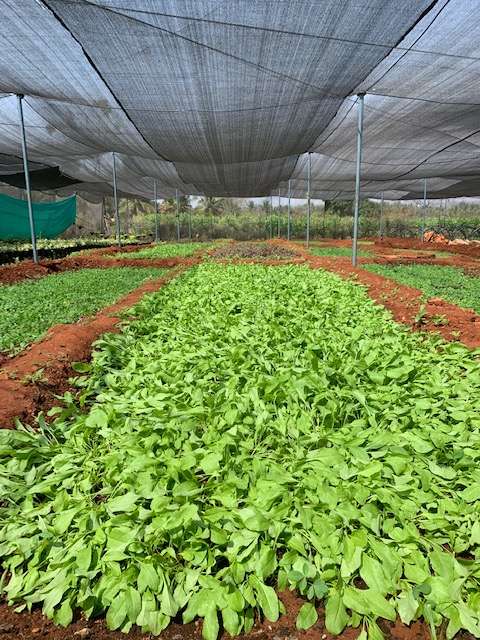
“My father was a government servant. But he always made it a point to spend an hour on the land outside our home before leaving for office. My mother’s side of the family was also into agriculture and owned a large piece of land. Growing up, our home was a green space with different potted plants placed everywhere. My friends would often tease us about turning our home into a jungle.”
Bhavya often told Deepesh about her dream of owning a small piece of land where they could set up a farmhouse.
“I remember telling him that even if we did not turn farming into a business, I wanted to grow food for our consumption.”
This interest led her to make several trips to nurseries and farms with her agriculturist friends, one of which was an eye-opener.
“I was rattled to know how in many parts of Bengaluru, greens were grown using water containing toxic industrial and domestic waste.”
Around this time, she came across another common friend who was growing greens in pots (using organic methods) and selling them in apartments in a different part of Bengaluru. He would carry the pots to the gates, pluck the leaves, weigh them, make a bunch and sell them.
“It was not only good business but a way to ensure that people were eating chemical-free food. He was getting so many orders that he couldn’t cater to everyone. He eventually had to shut it down after his land was acquired, but he encouraged me to start something similar in South Bengaluru, where I live.”
She leased land at Harohalli and set up a poly-house where ornamentals and indoor plants were grown. In the same area, she started growing greens in six-inch pots.
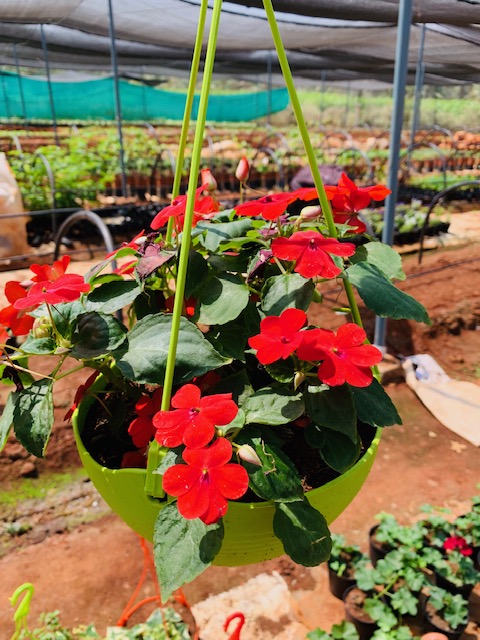
To ensure they were light-weight, the growth medium was 40 per cent soil, 40 per cent cocopeat, and 20 per cent manure. She sold these pots for Rs 25 to customers. Each pot could harvest between 150-250 grams of greens, that the customer could pluck during the week. If they did not want to continue any longer, they could return the pot and get a refund of Rs 5. In case they wanted to stay, she would replace the pot.
“While the results were good, I realised very early on that it wouldn’t be viable. Carrying the pots was increasing transportation costs. Besides, people complained about the price being too high, they preferred quantity over quality, without realising that these greens were chemical-free.”
The final nail in the coffin of the business was when industrialists acquired the leased land.
She wanted to give up, but Deepesh pushed her to keep going.
Buying land was not an option because in Bengaluru an acre costs nothing less than a crore, and the agricultural land belonging to her mother’s family was 180 km away. After much hustle, they leased two acres of land at Nettigere and shifted the poly-house there, and since then, she has been operating from here.
“We set up a shade net to grow greens. I knew that converting any land to organic would take nothing less than two years, so I began brainstorming solutions. I dug 12 huge patches on half an acre. At the two feet mark, I removed the existing mud and filled it with new red soil, coco peat, and pure sheep and cow manure before the first round of plantation,” she explains.
They plant one variety of a green leafy vegetable every month.


Once that is harvested, the soil is left to rest and rejuvenate for a week, and is fed with manure to maintain moisture and fertility. At the end of this one-week break, the next variety is planted.
Since the crops are harvested in a short duration, she hasn’t faced any pest attacks yet, but if it does happen in the future, she aims to tackle it with neem oil.
The first harvest was abundant. But unlike pots that could be kept for a week, the harvest and sale of greens grown on land had to be quick and done in a limited period of time. She turned to a friend, a home-chef on Foodybuddy who gave her the contact of an apartment complex close by.
You may also like: Bhuj Man Transforms 40 Acres of Barren Sand Into Orchard for Exotic Fruits & Dates!
When Bhavya travelled to the complex the first time and explained to the residents the business she was running, only four women gave her an order. They bought one bundle of each of the four varieties.
“What motivated me was the feedback. The second time I visited them, they walked up to me saying, ‘Bhavya, the greens are so tender, crisp and tasty. Some of us who didn’t even like raw leafy greens have started consuming them, thanks to you!’ It boosted my confidence.”
To ensure the produce is fresh, Bhavya harvests it a mere hour before delivery. Word-of-mouth publicity helped her gain more customers not only in one apartment complex but another too.
Today, she sells these greens twice a week in one complex and once a week in the other, and all her customers coordinate with her via a WhatsApp group she has created.
When asked if she has any plans for expansion, she says, “I want to extend the patch of greens from half an acre to two acres and also explore growing other vegetables. But I am short of labour, so I plan on taking this one day at a time.”
She signs off with a messaged for other aspiring urban farmers.
“When we first started farming, I had a few villagers walk up to me saying, ‘Are you Bengalureans mad? Why would you want to leave your air-conditioned offices and toil in the sun?’ I just said, ‘If all us take up cushy jobs with big paychecks, who will grow chemical-free food? People claim that organic farming is a tedious process and not high-yielding. But I differ. Yes, it does take some time to make it profitable, but imagine growing food that doesn’t degrade your soil, isn’t doused in chemicals and keeps you healthy. All the effort is absolutely worth it.”
If this story inspired you, get in touch with Bhavya on [email protected]
Find more pictures from Bhavya’s farm below:
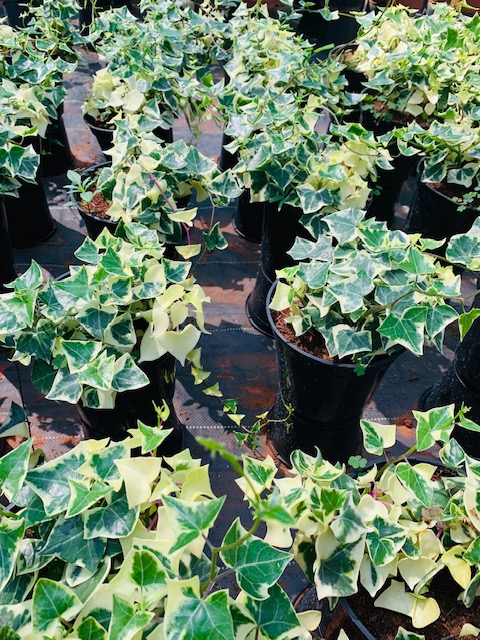

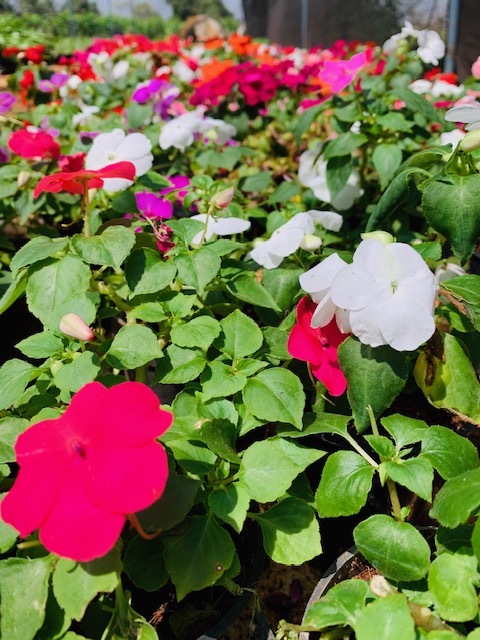
(Edited by Gayatri Mishra)
Like this story? Or have something to share?
Write to us: [email protected]
Connect with us on Facebook and Twitter.
If you found our stories insightful, informative, or even just enjoyable, we invite you to consider making a voluntary payment to support the work we do at The Better India. Your contribution helps us continue producing quality content that educates, inspires, and drives positive change.
Choose one of the payment options below for your contribution-
By paying for the stories you value, you directly contribute to sustaining our efforts focused on making a difference in the world. Together, let’s ensure that impactful stories continue to be told and shared, enriching lives and communities alike.
Thank you for your support. Here are some frequently asked questions you might find helpful to know why you are contributing?


This story made me
-
97
-
121
-
89
-
167













